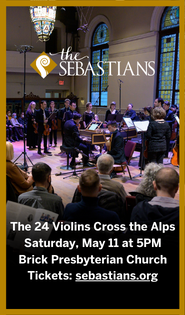Top Ten Performances of 2017
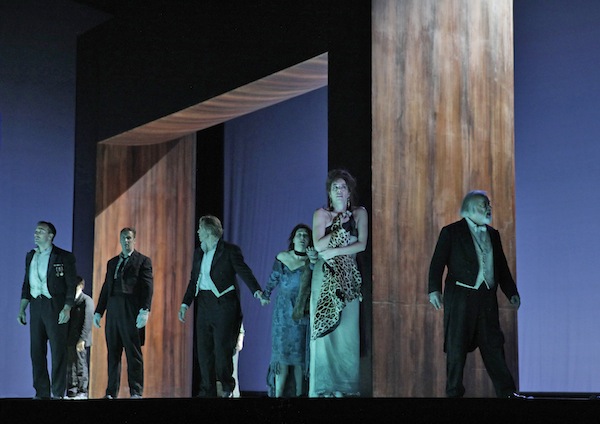
Photo: Ken Howard
1. Thomas Adès’s The Exterminating Angel at the Metropolitan Opera.
Among today’s A-list composers, Thomas Adès increasingly seems to be in a class of his own. Sought after by the world’s leading orchestras and opera companies, he is one of just a handful of composers working today who can command headlines and sold-out audiences. His dark, gripping realization of Luis Buñuel’s film The Exterminating Angel was the highlight of the fall season at the Metropolitan Opera, bringing both the humor and the disturbing psychology of the source film to the stage with an inspired, challenging score. (ES)
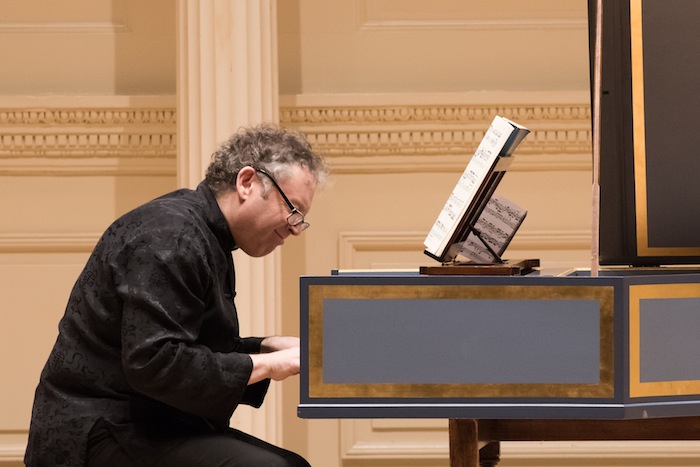
Photo: Nan Melville
2. Richard Egarr at Weill Recital Hall.
Perhaps the most liberating and exciting aspect of early music is that freedom’s just another word for not having any rules. Richard Egarr played music from the Fitzwilliam Virginal Book with appreciation for how so much of the music was experimenting with forms and structures that would be codified later. He captured the balance between the original avant-garde qualities and how our contemporary ears think of this as old-fashioned repertory. There were astonishing surprises every measure, in a recital that was exciting and delightful. The scintillating bite of the meantone temperament he used added to the unique pleasure of the recital. (GG)
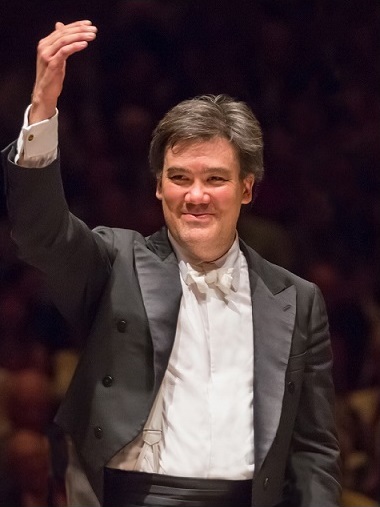
3. Beethoven’s Symphony No. 5. Alan Gilbert and the New York Philharmonic.
The Philharmonic opened its first concert in 1842 with Beethoven’s Symphony No. 5 in C minor and closed its 175th birthday program in December with the same piece. Absolutely nothing else was “the same” in the birthday performance of this familiar music. Every detail sounded freshly inspired, and conductor Alan Gilbert gave it a New York “go” right down to the final chord, which was blotted out by a very un-subscriber-like roar of spontaneous, prolonged applause. (DW)
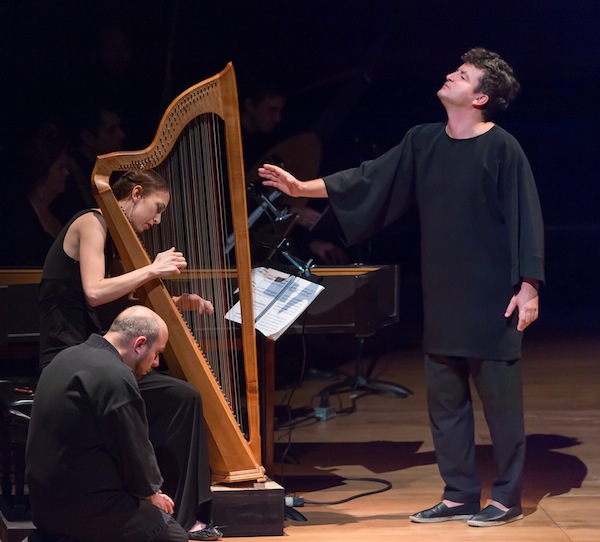
Photo: Kevin Yatarola
Some weeks removed from this exquisite performance, one comes to a better understanding of what separated this L’Orfeo from a pack of many other excellent performances and recordings. The English Baroque Soloists, the Monteverdi Choir, the solo singers, and Gardiner are not just a musical ensemble but something like a performing troupe from the Renaissance. As with a Shakespearean tour, they have material of genius to work with, and they do it with a a polished naturalness—superb technical skill and a deep familiarity that brought the urgency of this opera to life. All the musical, decorative, and social distractions that have accreted to opera fell away before the simple, humane glories of this foundational work. (GG)
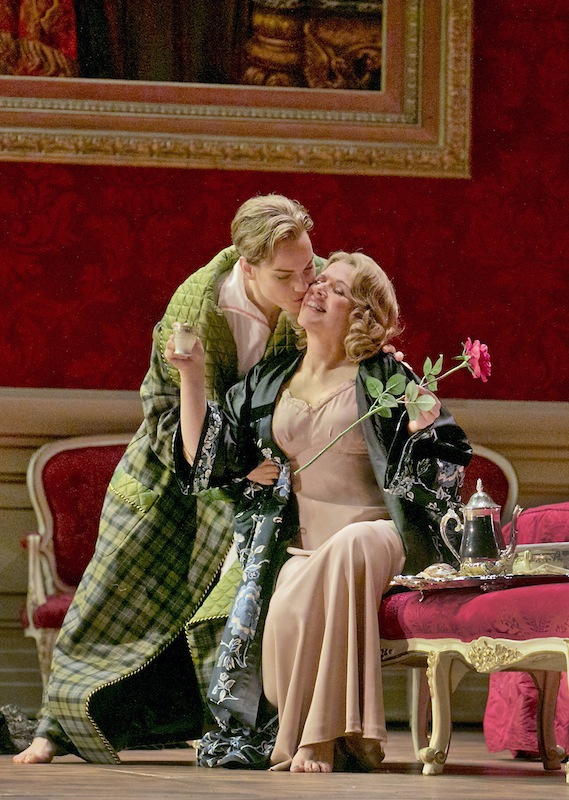
Photo: Ken Howard
5. Richard Strauss’s Der Rosenkavalier at the Metropolitan Opera.
The extended Renée Fleming Farewell Tour was one of the stories of the 2016–17 season, even if rumors of her departure from the stage may have been exaggerated. For her grand Met sendoff (or so it was billed, at least) she took one last turn as the Marschallin in Der Rosenkavalier, giving a subtle, conflicted portrayal that featured some of the most secure singing she’s done in years. Elīna Garanča was a revelation as Octavian, an adolescent coming of age before our very eyes. Robert Carsen’s new production received its share of jeers, but it is a playful, invigorating creation that will hopefully be a mainstay of the Met rep for years. (ES)
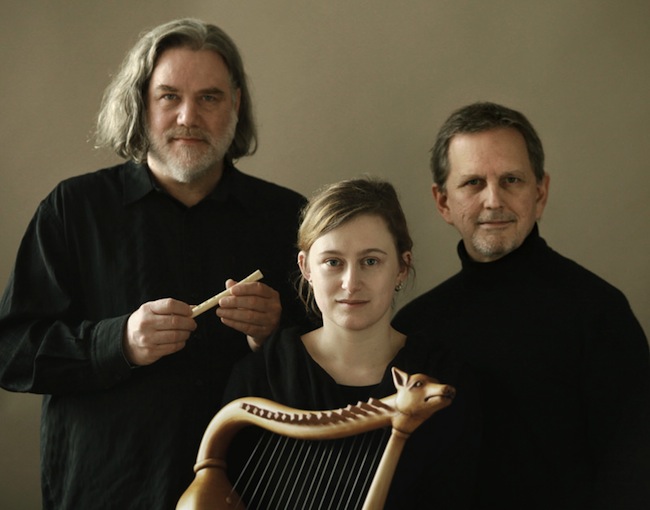
6. Sequentia at Music Before 1800.
Another exciting aspect of early music is that there is so much of it that is “new”–forgotten long ago yet rediscovered through forensic scholarship. Sequentia is the best at this for Medieval music–not only doing the research, but knowing how to bring the key manuscripts to musical life. The earthiness of form and expression, the way this music is so close to the body, and their great skill at improvising, are unique on the classical landscape. This music sets a standard for beauty, of course, and to this Sequentia connected the original cultural context and revealed its substantial sophistication. (GG)
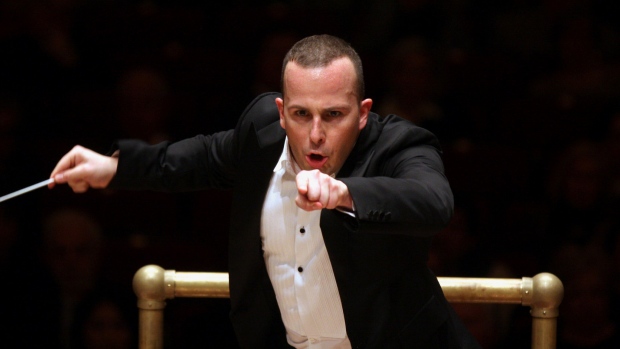
7. The Philadelphia Orchestra at Carnegie Hall–Tchaikovsky and Bartók.
One of the strangest pairings of the year turned out to be one of the most rewarding, as well. Yannick Nézet-Séguin and the Philadelphia Orchestra began one of their Carnegie Hall concerts with a sumptuous performance of Tchaikovsky’s Swan Lake and followed it up with an intense reading of Bartók’s chilly, inscrutable masterpiece Bluebeard’s Castle. Every performance Nézet-Séguin gives in New York now feels like a tantalizing preview of the energy he might bring when he takes the helm at the Metropolitan Opera. (ES)
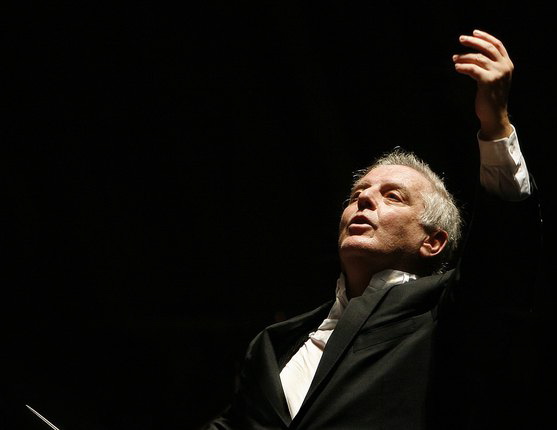
Photo: Sebastien Grebille
8. Bruckner’s Symphony No. 5. Daniel Barenboim, Staatskapelle Berlin at Carnegie Hall.
The complete Bruckner cycle at Carnegie Hall would have been an event just for the exposure to these pieces. The standard of thinking and playing from Barenboim and the Staatskapelle was very high; Barenboim has established himself as a Bruckner interpreter on the level of Günter Wand or Stanislaw Skrowaczewski and the orchestra is one that has been playing the music for decades. The arguable high point of the weeklong cycle was the Fifth, where the musicians laid out this most formal of all the symphonies with the logic, emotional power, and pure beauty that is Bruckner. (GG)
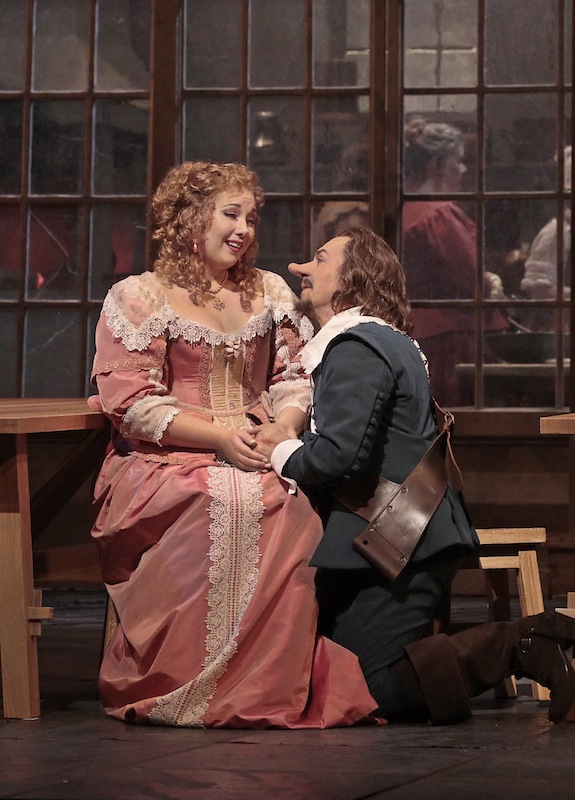
Photo: Ken Howard
9. Alfano’s Cyrano de Bergerac at the Metropolitan Opera.
2016–17 was an exceptional repertory season at the Met, offering a strong variety of programming with outstanding casts, including a few rarities. The surprise late-season hit of the year was a revival of Franco Alfano’s Cyrano de Bergerac, featuring a deeply moving performance by Roberto Alagna. His portrayal of the knob-nosed romantic brought out the intimate human tragedy of the piece, injecting a subtle note of sorrow into even the most comedic moments. Jennifer Rowley had a breakout night as Roxane, showing off a voice of variable color and crafting a remarkable character arc that culminated in a heartbreaking final duet for the two should-have-been lovers. (ES)
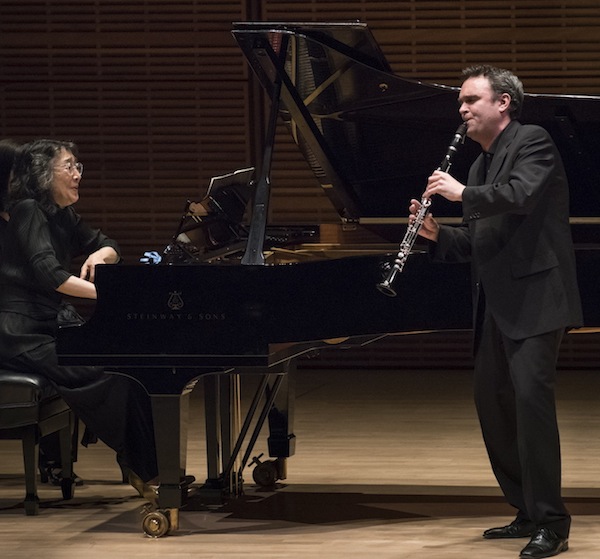
Photo: Stefan Cohen
10. Jürg Widmann and Mitsuko Uchida in Zankel Hall.
This concert was a testament to the power of pure musicianship. The basics of playing an instrument and interpreting a composition—dynamics, the articulation of phrases, pace, sensitivity and response between lead voice and accompaniment—all came together with the deepest artistry from Widmann and Uchida. It is impossible to imagine how instrumental playing could be any better. (GG)
Honorable Mentions
Philip Glass’s Symphony No. 11 at Carnegie Hall. Glass is so vital it’s hard to believe he’s 80 years old, and the composer is in the process of creating a late style. He’s dropping new ideas into his standard repetitive structures, and adding new colors and feelings to his powerful forms. Glass’s newest symphony is full of surprising details, subtle changes from his decades-long direction, and bursting with a joyous energy that is showing up increasingly in his work. One felt this must have been what concerts were like before the 20th century; the anticipation and pleasure of hearing something new from a beloved composer, not least because it was presented by his long-term collaborators–in this case, Dennis Russell Davies and the wonderful Bruckner Orchester Linz. (GG)
The Chamber Music Society excels at variety, usually by arranging a mix of ensembles from among its roster of season artists. This year, a celebrity visit from the Shanghai String Quartet made for CMS’s most rewarding program of the year, an eclectic program that offered music by Haydn, Dvořák, and Frank Bridge, plus a harrowing, sweat-inducing reading of Pendercki’s String Quartet No. 3. (ES)
Also, the New York City Opera continued its remarkable comeback with a probing and often hilarious production of Peter Eötvös’s operatic adaptation of Angels in America. Joyce DiDonato blazed brightly in a concert performance of Handel’s Ariodante at Carnegie Hall. Alan Gilbert led a thrilling account of Das Rheingold in his final weeks as the New York Philharmonic’s Music Director. Clémentine Margaine made a brilliant Met debut in a steamy, charged performance of Carmen. Sonya Yoncheva gave yet another incandescent performance as Violetta in La Traviata. And Isabel Leonard and Vittorio Grigolo found all the tragic beauty of Massenet’s Werther. (ES)
Performances of Rachmaninoff’s acerbic Third Symphony tend to evoke nostalgia for the younger composer of lush, Hollywood-tinted concertos. In November, conductor Gianandrea Noseda threw out the Romantic playbook, the New York Philharmonic rendered the exciting piece in all its hard-edged, modernistic glory, and guess what? A couple of pretty tunes sneaked in there, too. (DW)
Time’s Arrow: Webern songs
The resident ensemble at Wall Street’s Trinity Church launched its season-long traversal of Anton Webern’s complete works with a lively program of songs, alternating works of the Viennese master and of the Renaissance composers he admired. The performances were outstanding, but the best part was taking these brief songs out of the one-and-done format of a standard concert program and training the spotlight on them for a rich, rewarding hour. (DW)
Pinch hitter of the year
Going on as a cover is never easy, much less when the performance at stake features a marquee star like Sonya Yoncheva. Nelson Martinez, called on to replace Thomas Hampson, rose to the challenge, showing a gorgeous, wooly voice as Germont père in La Traviata. (ES)
The winds have it
Once it decided to give a program entirely to music for winds (and the occasional piano), the Chamber Music Society of Lincoln Center could have followed its conservative instincts and programmed familiar works by Mozart, Poulenc, and Stravinsky. Instead, it threw caution to the winds and went for attractive novelties for wind ensemble by Janáček, Mendelssohn, Ibert, Saint-Saëns, and Martinů, to the general delight. (DW)
Audience participation trophy
When the Met assembled an all-star cast for a revival of I Puritani, it was bound to be one of the must-see performances of the season, and in the end the theatrics weren’t confined to the stage. Incontinent praise rained down from the balcony for Diana Damrau’s mad scene, and one incensed operagoer felt compelled to point out to the entire house that Javier Camarena’s “Credeasi, misera,” glorious as it was, had “No high F!” (ES)

Fond Farewell
Since late November, the opera world has been in mourning for one of its greatest stars, the brilliant baritone Dmitri Hvorostovsky. He had few peers in his many Verdi roles, and just about defined the title role of Tchaikovsky’s Eugene Onegin for Met audiences. His final Met appearance, a surprise performance of “Cortigiani” from Rigoletto, stood out among many highlights at the company’s fiftieth anniversary gala. (ES)


